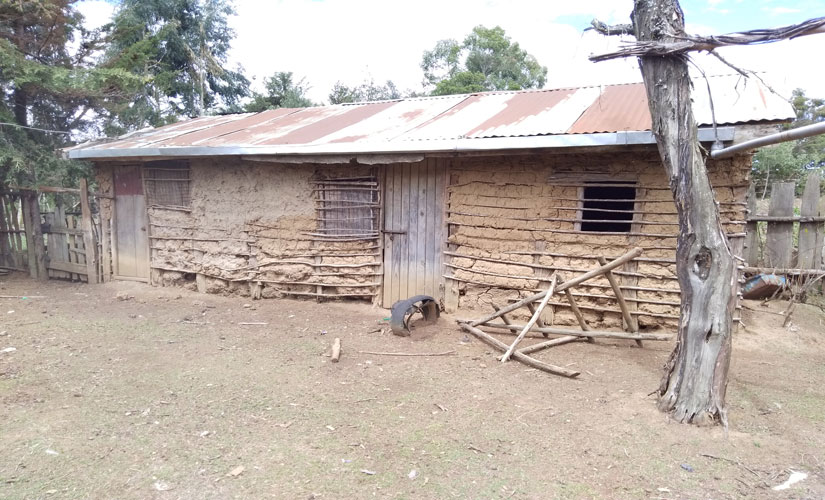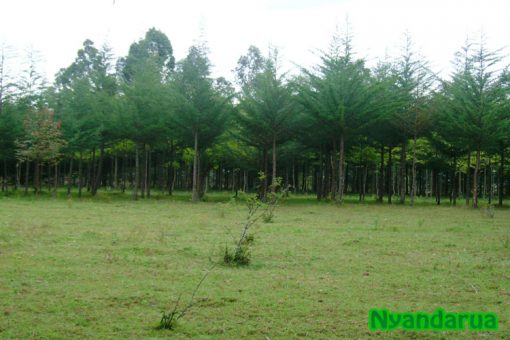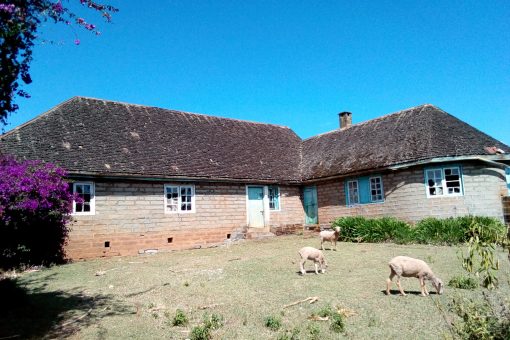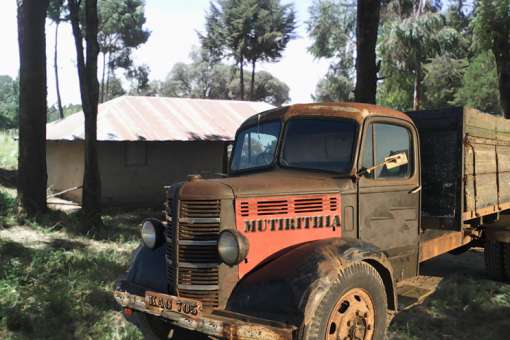OlKalou passengers were hurriedly dropped off on the Nairobi Nyahururu highway at Agip Petrol station, the impatient bus driver almost leaving with your precious luggage. The luggage was a padlocked metal box, usually green or blue in color, the one your parents bought for you when you reported to form one. The box had all your high school belongings and it would have been a tragedy to lose it because that meant your parents had to replace every lost item before you reported back to school the next term.
After receiving your metal box from the bus conductor and the bus left you in a cloud of dust and diesel filled smoke, a sharp gust of the familiar OlKalou wind welcomed you by almost knocking you off your feet. You stabilized yourself because you had a long walk ahead of you before reaching your home deep in the Settlement Scheme. You hoisted your box on your shoulder and made your way across the dusty windblown town, out of town into some dusty potholed road, up some hills and down some valleys before you finally spotted smoke coming from your mothers kitchen, then you knew you were finally home after a three month absence.
But, you only found your family home if you arrived late in the evening. With majority of OlKalou families spending their entire day on the farm, it was not unusual to arrive home to find a padlock on the door. That always gave a sinking feeling. There was no welcoming committee and no red carpet rolled out for your arrival. It was up to you to go to the farm looking for your family, wherever they were working that day.
You put your box somewhere outside the house, made your way to the farm to surprise everybody with your arrival. With no telephone communication back in the day, parents gave their children school fees, pocket money and return bus fare at the beginning of every term. That meant they had no idea when schools were closing for the next holiday. But it was not a big deal according to the parents because they knew you had everything you needed for your tuition and accommodation for the three months and whenever the school released you for the holidays, you already had the bus fare to bring you home. That is why the school closing date was not of much significance to them. I guess their attitude was: ‘we will see you when we see you’. That is why your arrival home took everybody by surprise.
But now that you were home, the family had to hurry and wind up their farming activities for that day. They needed to take you home and fix you something to eat and drink, to welcome you home after your long absence.
But since you joined your family on the farm, you could not stand idly by and watch them work. You knew better than that. So, still clad in your high school uniform, like a good child of that home, you helped your family gather the harvest, hoisted a sackful on your shoulder like everybody else and headed home together as you answered their questions about the faraway places you just came from.
You were happy to be home with your family, but the padlocked house and a cold kitchen hearth are not exactly the scenario you had hoped for upon your arrival. But what to do?
As you settled in, unpacking your box, changing from your school uniform and making your bed, your mother and younger siblings were extremely busy getting the household functioning again. Your mother was probably chopping firewood with an axe (gwatura ngu) to start a fire, warming water and washing dishes from breakfast. Some of your younger siblings were on their way to the faraway dam to fetch water while others were sent to OlKalou town to buy a quarter kilo of sugar, tea leaves and a loaf of bread, a special treat for their ‘guest’. It took a while before you got your welcoming cup of tea. But you were home at last and that is all that counted.




